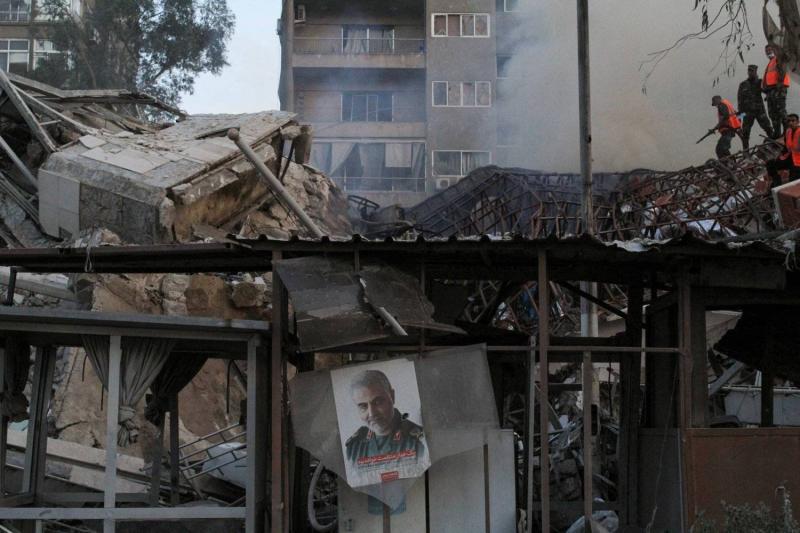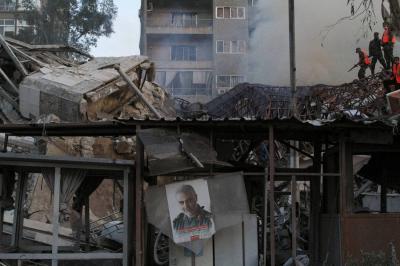Despite more than 20 days having passed since the Israeli strike targeting the Iranian consulate in the Syrian capital, Damascus, some details about the attack remain unclear. New information has emerged in recent hours regarding the targeting of the consulate. Sources close to the matter reported that the attack eliminated the entire leadership responsible for the activities of the Revolutionary Guards in Syria and Lebanon, according to "The Jerusalem Post" citing Bloomberg TV.
It was noted that Brigadier General Mohammad Reza Zahidi and his deputy Mohammad Hadi Rahimi, along with other officers who were killed in the Israeli strike, believed the consulate building, adjacent to the Iranian embassy, was the "safest" location in Damascus and that Israel would not dare to attack it. Furthermore, it was revealed that before the aerial strike on the consulate building, there had been plans to relocate the residences of the Iranian ambassador and consul to a new residential complex on the same street, where relatives of Syrian President Bashar al-Assad reside. However, shortly before the attack, senior officials of the Revolutionary Guards gathered on the second floor of the consulate and decided to stay there.
It is noteworthy that immediately after the assassination of Zahidi, Iran began to seriously suspect the involvement of Syrian groups in several assassination cases targeting Revolutionary Guards members over the past few years. Iranian suspicions centered around the assassination of 18 commanders within a short period, attributed to Israeli attacks within Syrian territory, as confirmed by a Syrian opposition figure who spoke with an Iranian official.
According to the Syrian opposition figure, after the assassination of Reza Mousavi in Syria in December 2023, a joint investigation was initiated between the two countries to attempt to trace the potential security breach. However, at a certain stage, Iran chose to conduct an independent investigation with Hezbollah, due to concerns over Syrian intelligence's involvement in the inquiry. The independent investigation concluded that the security breaches leading to the assassinations occurred under high-level political and security cover, although it was unlikely that Syrian President Bashar al-Assad was aware of them.
What further heightened Iranian suspicions regarding the involvement of security agencies was the fact that Hezbollah operatives targeted in Syria were connected to Syrian security agencies, and their assassinations were likely facilitated through advanced technological espionage. It is notable that the strike on the consulate opened the door to threats between Iran and Israel, bringing the decades-long shadow war between the two countries into the open for the first time. The incident also raised military alert levels in the region and escalated tensions in the Middle East to an unprecedented degree.




